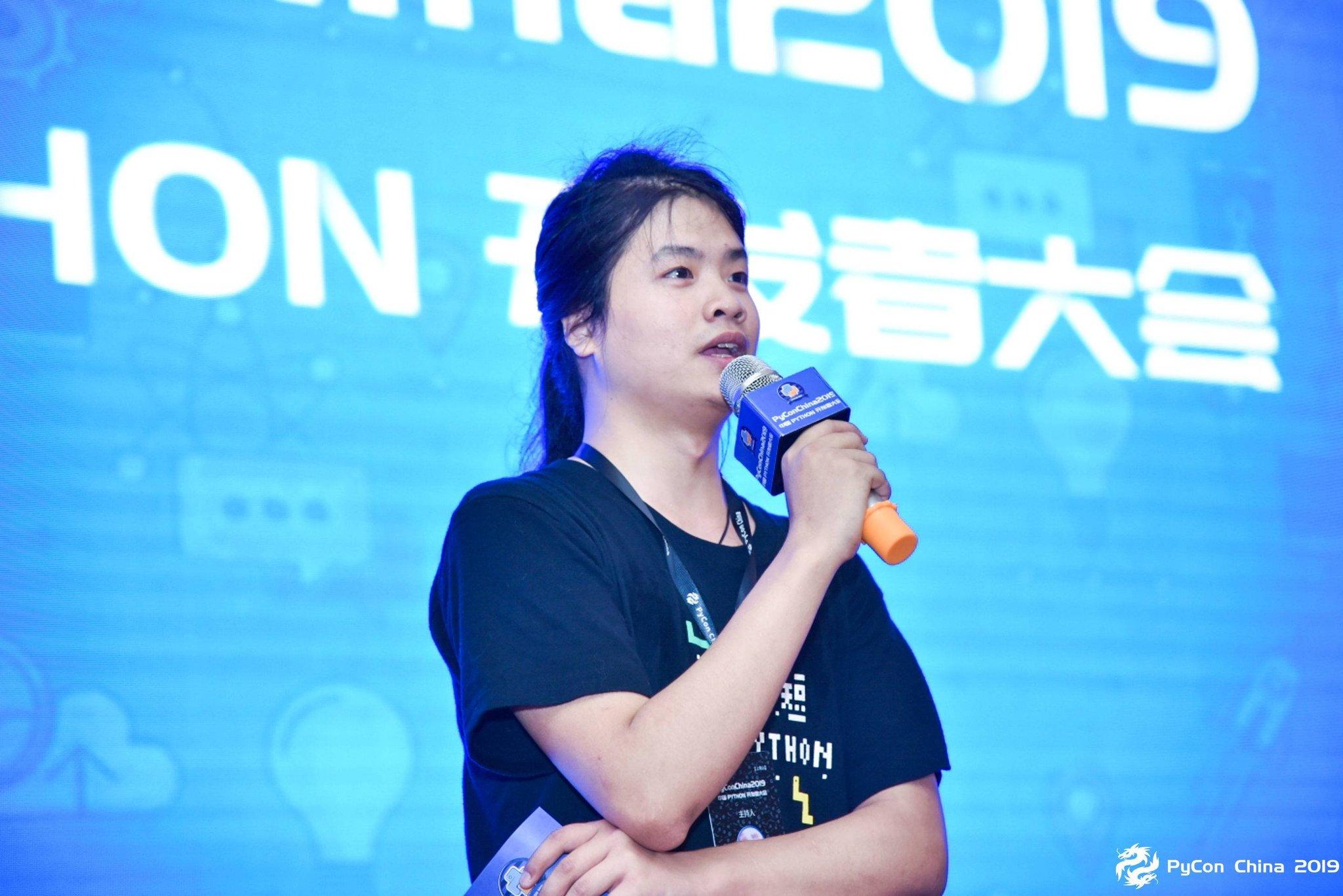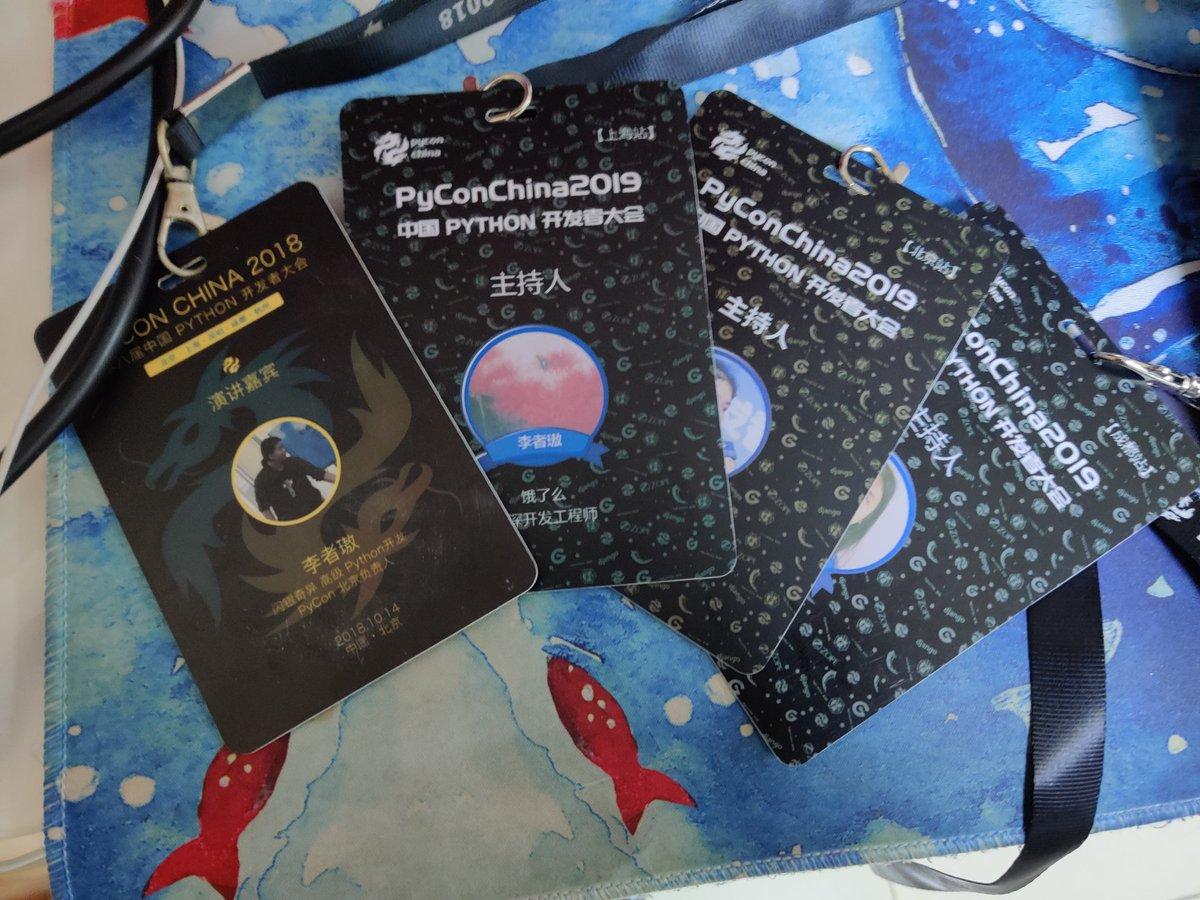Actually, I started writing this article in September, after the conclusion of PyCon China 2019 in Shanghai. However, due to the upcoming events in Beijing and Chengdu, I postponed it until now. It coincided with the end of my own three-year plan, and the next three-year plan is currently underway. So, let me talk about one of the most time-consuming and important parts of these three years. PyCon China, well, in these three years, I have been associated with this familiar yet unfamiliar name for two years.
My Introduction to PyCon China#
To be honest, a statement from Laike9M resonated with me before.
Kenneth Reitz once said that he measures his year based on PyCon. Despite the controversies surrounding him, this statement still resonated with me. For him, "PyCon" naturally refers to PyCon US, while for me, it refers to PyCon China.
And in the past two years, from 2018 to 2019, a significant portion of my time revolved around PyCon China.
If we talk about the earliest encounter with PyCon, it can be traced back to 2016. At that time, when I was just starting to learn Python, I was amazed by a presentation by David Beazley at PyCon US 2009 titled A Curious Course on Coroutines and Concurrency.
It made me set a few goals for myself:
- Give a presentation at PyCon China.
- Organize a PyCon China event.
- Submit an accepted PEP proposal.
- Become the first mainland Chinese Python Core Developer (although in November 2016, angwer from Huawei became the first Core Developer, so this goal was modified).
Afterwards, I continued to follow the progress of PyCon China and realized that its reputation was declining year by year, which made me feel very sad.
In 2017, the reputation of PyCon China hit rock bottom. At that time, as a young and impulsive person, I vented my frustrations on the mailing list. However, I also considered whether my own abilities were sufficient to support the organization of a large-scale event, so I decided to try it out first. Therefore, under the name of "Python Beijing Developers Community," I organized the first Python Beijing Developers Event using the venue provided by Thoughtworks in Beijing. Based on the feedback afterwards, this event was relatively successful, which solidified my intention to participate in PyCon China. By the way, this event also allowed me to meet many wonderful friends, such as Yao Qian, the volunteer leader for the 2018 Beijing event, and Liu Yulong, the organizer for the 2019 event.
In March 2018, I formally expressed my intention to participate in PyCon China through email. In July, after meeting with Xin Qing, the person in charge behind PyCon China, I officially joined the organization of the 2018 event. Once I got involved, there was no turning back. I also participated in the preparation work for the 2019 event.
Reflections on PyCon China in the Past Two Years#
To be honest, I have complained to Xin Qing more than once.
I think only an idiot would participate in organizing this event.
Xin Qing said:
You don't have to say it, we all think we're idiots.
Organizing the event is really tough... I was the person in charge for the Beijing and Chengdu events in 2018, and the person in charge for the Beijing, Shanghai, and Chengdu events in 2019, as well as a speaker at the Chengdu event. Honestly, after these two years, I needed at least half a month to recover. It was a feeling of exhaustion.
Many people may ask, is organizing the event really that tough?
Yes, it is. Let me briefly explain the current operation mode of PyCon China.
PyCon China is currently organized by a group of volunteers who handle the behind-the-scenes work. The preparation for each year's PyCon China starts around March or April.
Our work includes, but is not limited to, the following:
- Selecting the venue.
- Collecting speaker proposals.
- Designing the theme for this year.
- Reviewing the themes and providing speaker coaching.
- Seeking sponsors.
- Communicating with domestic and international communities.
- Preparing press releases.
- On-site event management.
Starting from August and ending in October, everyone is in a highly tense state. Almost every day, we need to work until 1 or 2 in the morning to complete the preparations for the day (because we are all volunteers).
Once each city starts hosting the event, the organizers face even greater challenges, both physically and in terms of specific tasks. For example, in the Shanghai and Beijing events, I only slept for 4 hours over two days, while the situation was even worse in Chengdu. Due to a typhoon, a Japanese speaker was unable to attend the morning session, so I had to create a PowerPoint presentation on the spot to fill in. As a result, I only slept for 6 hours in 72 hours.
So, organizing the event places high demands on physical endurance and various abilities.
Why?#
Actually, I don't know why. Maybe I really am an idiot?
To be honest, PyCon China has played an extremely important role in the first few years of my career. I have been loved, tolerated, and taught so much by everyone here. So, I am grateful, in pain, and happy at the same time.
A friend once said: From my limited perspective, Manjusaka is the key figure who has brought PyCon China back to life. I am truly grateful for everyone's recognition, but I have to say that I am just a small part of these two years. Behind the scenes, many touching things have happened that make people feel a sense of belonging to this community. For example, Xin Qing, who personally covered the loss of over 200,000 yuan in 2018, and Sister Cuo, who cried while designing but still successfully delivered the design. There are also volunteers like Qian Yi, the housekeeper, and Da Mao, the financial manager, who have silently supported us. And let's not forget Minako Fujii, the Japanese girl who chose to come to China despite the cancellation of her flight due to a typhoon. It is because of the existence of this group of people that PyCon China continues to progress and grow.
So, I am honored to have such an unforgettable experience during the most important years of my life. Well, I don't know what else to say.
About the Future#
Regarding the future, in terms of my career, I have recently been transferred to Alibaba Cloud to work on middleware development. I will probably continue on the path of technology for a long time. As for PyCon China 2020, the preparation work has already begun. However, due to my own health reasons, I am not sure if I will be able to participate. But unless something unexpected happens, although I may not be able to support multiple cities like in 2018 and 2019 (because our volunteers in each city have grown up!), you will still see me there.
Finally, here are two pictures to commemorate the occasion.


Lastly, PyCon China 2020 has already started its preparation work. Everyone is welcome to join!